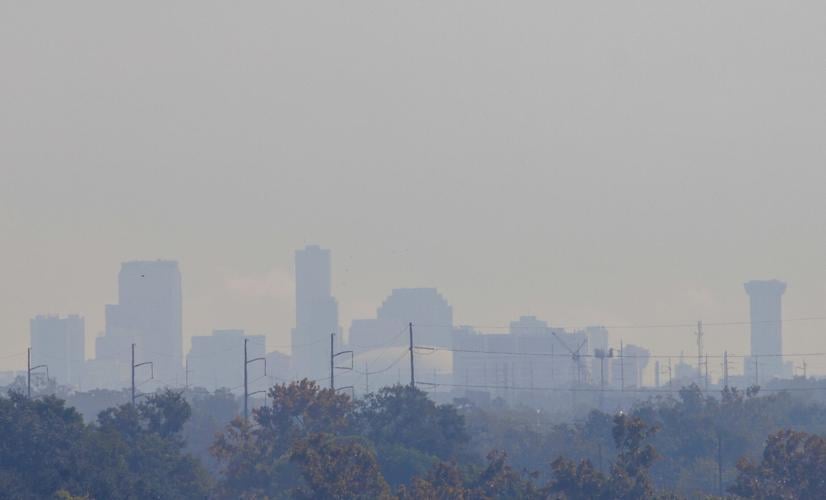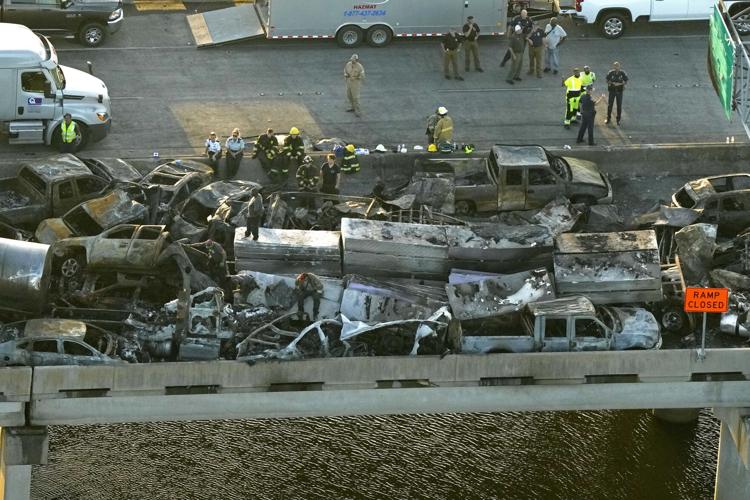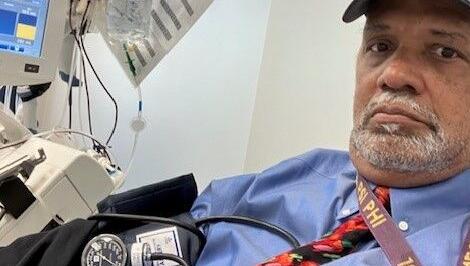When I woke Monday morning and walked into my living room I knew something was wrong. I couldn't see out the window.
I couldn't see a thing. Nada. Nothing but a red light in the distance. I couldn't see beyond my window sill.
I was one of hundreds of thousands of people in southeastern Louisiana who couldn't see much that morning.
I'm glad I wasn't driving. I'm glad I wasn't on the Causeway. I'm really happy I wasn't on Interstate 55.
A super fog hung over the Greater New Orleans metro area and much of the region like nothing we've seen before. The Causeway, which has specific weather protocols, was closed by officials to avoid something terrible happening. North of LaPlace, near Manchac in Tangipahoa Parish and Ruddock in St. John the Baptist Parish, I-55 was closed — not by officials but by accident after accident until officials had no choice but to close the highway.

Columnist Will Sutton donates a couple of pints of blood at The Blood Center's University of New Orleans campus location Tuesday, Oct. 24 to help replenish the blood used to help victims of the superfog crashes on I-55 the morning of Monday, Oct. 23.
About 150 cars, trucks and other vehicles were involved. At least eight died. Officials said more deaths might be uncovered. Scores were injured. The Louisiana Department of Transportation and Development inspected the highway damage Tuesday and all of the crashed and burned vehicles were removed.
Parts of the highway were opened, but the core section where the most damage occurred remained closed, at least into Tuesday night.
Our tragedy made the national news. The New York Times. USA Today. The Weather Channel. CBS News. CNN.
Each day there are accidents and incidents that cause people to lose blood. They don't get as much publicity as this week's horrific crash. Tuesday afternoon, the Blood Center, which operates seven locations in Louisiana and two in Mississippi, issued a plea for blood donations. Within hours, people responded.
Nannette Keller had left her Metairie home for the center's Metairie center about 10 minutes away late that morning. When she walked out of her door, she knew something was wrong. "You could smell it," she said. "It was like a gigantic barbecue" with lots of smoke from swamp fires on private property and a dense, heavy fog.
The Metairie location, closest to the crash, was busy by midafternoon, according to Keller, an apheresis technician and backup supervisor who was on duty. "They started coming about 2. They saw it on the news." People kept coming. As one of the eight donation station seats opened, someone else sat down. It continued into the evening.
Keller told me that some uninjured crash victims donated blood later in the day after finding their way home. One man told her he showed up "because he said he saw how hurt people were." One woman showed a picture of her friend's burned car. "She said, 'I saw people with broken noses and broken arms, ... so I knew I had to come and donate.'"
The center topped its daily collection goal by about 15% Monday. Tuesday was on track to have like results.
Dr. Tim Peterson, the Blood Center medical director, said they responded to a mass trauma protocol from area hospitals looking for blood. They were able to supply much-needed blood, but that reduced their three- to four-day supply. "It's the blood donated before an emergency that saves patients' lives," he said.
Without continuous donations in the coming days, Peterson said, it could take weeks to replenish the blood supply used to help Monday's crash victims.
I saw the center's call to action and responded.
I visited Keller at the University of New Orleans Blood Center Tuesday afternoon and donated a couple of pints of blood. I was in and out in about an hour. Donors can donate a single pint in even less time.
I've been a blood donor for decades. It's rare that I know who I've helped, but I know I helped someone this week.
Lots of us were horrified by what happened Monday. Some first responders did what they do so well: saving as many as they could. The super fog could return this weekend and maybe next week.
Without available blood Monday, things could've been worse. We can help by unfolding our arms and allowing a life-saving prick.
Person by person, pint by pint, we can save lives. I hope you will, too.




















